What is your typical day like?
Actually, no day is the same but almost all that I do is centered around the idea of seeking knowledge. A large part of my day is spent discovering and reading historical and interesting literature and soaking in music; there is a spiritual atmosphere around, and almost every night I go to bed, energised by the fact that I learn something new, something different, something valuable that I can use to make a difference in my own life and in the life of others.
Are there some activities that are non-negotiable?
Of course. I have to, for instance, practice music, daily. I have to read, everyday. It’s not like I have to sing the same song or re-visit the same text but I ensure I spend quality time practicing and reading because if I don’t, it really pricks.
What have you been reading, of late?
Today, for instance, I read some stories from the life of Sri Ramanuja (a Hindu theologian, philosopher and counted as one of the most important exponents of the Sri Vaishnavism tradition within Hinduism).
Are you fascinated with him and the story of his life?
Absolutely. It’s amazing how Sri Ramanuja cuts across caste, creed, language and other barriers of society. It’s also fascinating how he continues to be spoken of and revered nearly a thousand years after his birth. I’ve been particularly soaking in Sri Ramanuja’s philosophy over the last two years, filled with a curiosity about what has gone into making this person, this acharya such a great human being; his sense of equanimity, his compassion to serve one and everyone, his sacrificial nature, his service bent of mind continue to intrigue me and move me at the same time. It’s truly inspiring to read his teachings and philosophies.
After a three or a two-hour harikatha performance,
if a person goes back home with a prasanna hridaya (happy heart), a blossomed and enriched mind, nourished with values, feeling a sense of fulfillment and equipped to face the world in a better, more dignified way, then I think the harikatha has served its purpose
You obviously read a lot; how do you read?
I read not just to know things; that is data and information. But accumulating this knowledge and using it in the right way, reflecting upon it, is the very purpose of reading. It’s not enough, for instance, if you read and learn the Ramayana. You have to learn Rama; you have to understand his very innate qualities in the way he lived and conducted his life – his respect for his parents, his commitment for his wife, the way he loved his subjects… It’s irrelevant if I read the life and story of Harishchandra and spent my life, lying.
Are you then saying that stories are about people?
The truth is, each and every text, story or shloka, is actually meant for us, human beings, the common man. Our sages were people with doora drishti (far-sightedness). Look at Valmiki’s Ramayana; as a text, it continues to engage us all with its stories and it’s a very practical story, relevant to the world that we are in. That is the true purpose of an epic, of a spiritual text.
Chatrapati Shivaji, it is said, read and listened to so many epics and was so deeply inspired by them that he had the presence of mind to use them appropriately in his own life, across different trying situations. For instance, he had studied the Prahlada Charitham so deeply that when Afzal Khan attacked him, he pulled out a lesson from that text and used tiger claws to chase off his enemies.
The point is, we have got to make mythology a part of our lives in a way that we can contemplate upon them and see what lessons from there are applicable to our own life situations.
By virtue of reading such magnificent texts, do you feel you are constantly being enriched?
My life has been this way, and I’m extremely grateful for it. I’ve literally been moulded through these texts and through music. At a time when I started learning Carnatic music, my guru, legendary Sri Lalgudi G Jayaraman, was nearly 64; I was six. Around the same time, I also began listening to the katha of my guru, Guru Sri Krishnapremi Swamigal. So, in a sense, I have always been surrounded by great people. So much of my learning is by experience, svanubhava, as they say in Sanskrit. All this constant soaking in, naturally uplifts you; it has to, it must.
Experience then you believe is a great teacher?
Needless to say. Like the Rig Veda says, noble thoughts come from everywhere. We learn from everything and everyone and every action and situation, from a child even. The 11th canto of the Srimad Bhagavatham that enlists 24 gurus from whom we can seek knowledge lists among others, even a spider, a wasp… We can learn from anywhere, and everywhere.
You have lived in Srirangam for a few years now; for someone who grew up in a city, what did this physical shift entail?
I have lived in Srirangam for 16 years now. I definitely think that to immerse yourself in the pursuit of knowledge, the place you are in, has a significant role to play. Even ten years ago, the city that I grew up in, Chennai, hadn’t been taken over by distractions and chaos, aplenty. But I definitely think over the last decade, the place where I spend most of my life – Srirangam - has attained a great deal of significance because it allows me the luxury and the freedom to venture into a kind of an immersive experience that I wonder if life in the city would ever allow me.

Srirangam allows me more time to focus, and focus with an intensity. You tell me, can you sing even one song in a city in peace without your Whatsapp buzzing constantly?
Speaking of immersion, do you think immersion is dependent on the environment that you are in? I don’t ask you this only in context of your life at Srirangam but also, I’m keen to understand immersion that happens when you perform. Different spaces, venues, auditoriums, audiences even have different energies; is immersion always possible?
Every place, every sabha, every auditorium is different, even if I perform the same subject everywhere, there is a difference. But immersion begins when you begin the creative process. For instance, if I decide to work on a project on Sri Ramakrishna Paramahamsa, I have to immerse myself in his life right away. And it’s an organic process. I’m almost possessed by it; sometimes I lose sleep even and this obsession of sorts continues until the moment of delivery when months of reading and rigour culminate in a harikatha performance.
Having said that every performance is dependent on the desha (place), kala (time), avastha (circumstance). For example, if I were to present a harikatha on Sri Ramanuja’s life on Ramanuja Jayanthi, then that day has a different vibration. If I’m delivering a lecture at Srirangam or Melkottai or Tirupathi, places where his presence is felt more than in others, then I’m charged and energised and that makes a difference.
The audience also has an important role to play. If they are listening intently and are with you, every moment, then the performance is automatically elevated. As an artiste, you can sense this; sometimes at the exact same time, when you say something of great impact, the audience responds, collectively. The antaryami is the same.
The whole idea of energy is a concept. I don’t need to really be looking out for who is listening to or looking at me; that will actually affect my performance. But after so many years, I can feel an audience’s energy even though I may not necessarily see it.
You spoke of how creating a work can be an all-consuming process; almost possessing you… you are also a grahastha person right? How do you manage?
See, I’m not a Meerabai, I don’t have the kind of supreme devotion that she had for her lord. I don’t have that kind of bhakti or Shakti. I am a family person but I have the curiosity to peek into her life cognizant of the fact that I am a mother to my son, a wife to my husband and a daughter-in-law to my parents-in-law. Stories allow me an opportunity to live life vicariously and share them with others.
What according to you is the purpose of a harikatha?
Simply speaking, after a three or a two-hour harikatha performance, if a person goes back home with a prasanna hridaya (happy heart), a blossomed and enriched mind, nourished with values, feeling a sense of fulfillment and equipped to face the world in a better, more dignified way, then I think the harikatha has served its purpose.
It’s not enough if you read and learn the Ramayana. You have to learn Rama; you have to understand his very innate qualities in the way he lived and conducted his life – his respect for his parents, his commitment for his wife, the way he loved his subjects… It’s irrelevant if I read the life and story of Harishchandra and spent my life, lying
You adopted the traditional nine yards sari as your costume many years ago? What prompted that decision?
Firstly, it’s not a costume. Everyone in my family wears the nine yards. I’m attired in it 24/7, 365 days a year. I don’t wear it just when I’m up there on stage.
And as far as tradition is concerned, I think there is a great amount of misconception around that word and the word, mythology itself. Mitya, for instance, means false. Who says that Rama and Krishna are mythology? Someone obviously has manipulated us all to believe that our texts are all mythological. There is enough evidence to prove even the date of birth of Lord Rama and Krishna; the places they lived in, etc, very much exist.
So we all tend to believe that mythology and anything to do with tradition is not for the current generation. Rama and Krishna are historical figures and are not mythological in any sense of the word. I truly believe this is a thing perpetrated by Westerners.
You are an exponent of several stories; do all stories manage to move you the same way? Tell us a story or two that has remained with you; stories that you keep returning to?
Most stories leave a lasting impression on me but some stories like the story of Meerabai, Thyagaraja, move me more than others. But if I were to be utterly honest about my personal favourite then it would have to be Saint Thyagaraja; I have always been fascinated with his ingenuity, bhava and his ability to appeal to the head and the heart at the same time.
Do you think all stories have a moral? Should all stories have a moral?
Stories are presented either in a positive or a negative way. For instance, if you read a story on Rama, you are inspired to live a life like Him. If you read a story of Duryodhana, then you have to learn how not to lead a life like his. You can somehow derive a moral out of all stories.
But all stories, to answer the second part of your question, need not have morals. Take the story of Govardhana Krishna where a little curly-haired Krishna, carried the Govardhana mountain with his little finger. What is the moral of that story? If you want I can derive a moral and say that just like Krishna, you also must not worry about your life at the cost of serving society. But that’s really not the purpose of that story. The Krishna Leela and some stories like that are merely meant to make the heart and the mind, lighter and fill it with joy.
Would you think of your art as a profession?
Never. It’s my life. I cannot bring it down to the cadre of a profession. Profession is something you do for a livelihood.
Interviewed by Akhila Krishnamurthy
4 comments Comments
SIGN UP TO RECEIVE OUR WEEKLY NEWSLETTER IN YOUR INBOX





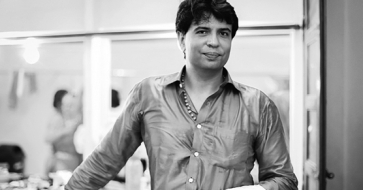
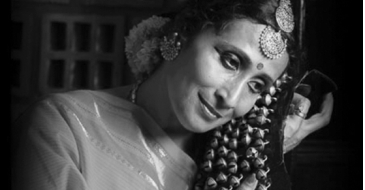
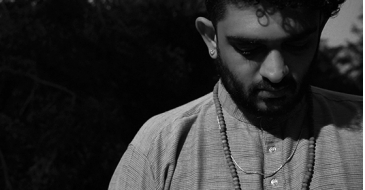
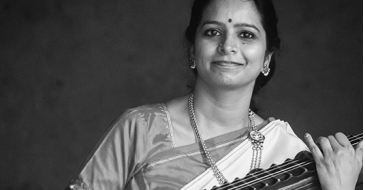
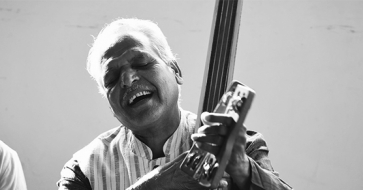
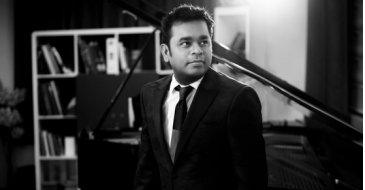
Pochiraju Daakshayini Radhika
May 02, 2017
Sanjana Vishwanathan
May 02, 2017
Prabhakar baditha
April 30, 2017
GOVINDA SUBRAMANIA KUMAR
April 27, 2017